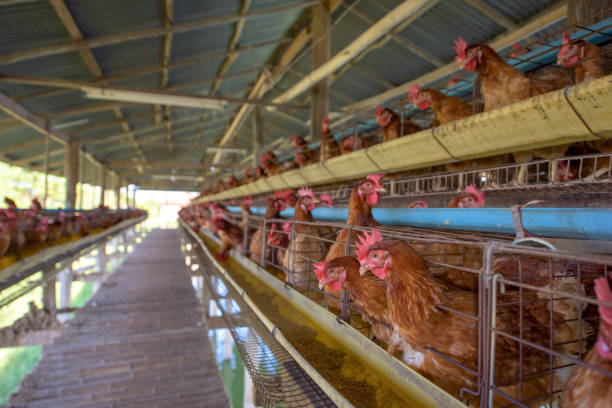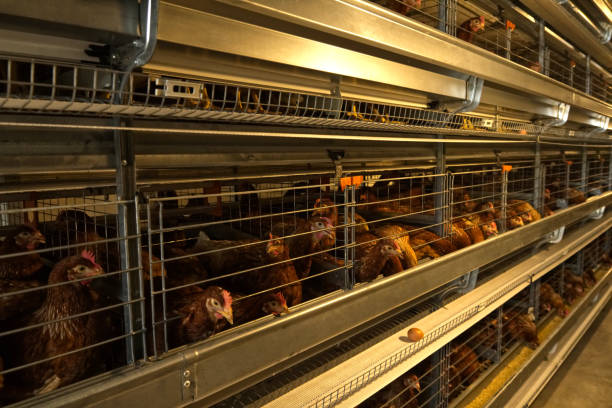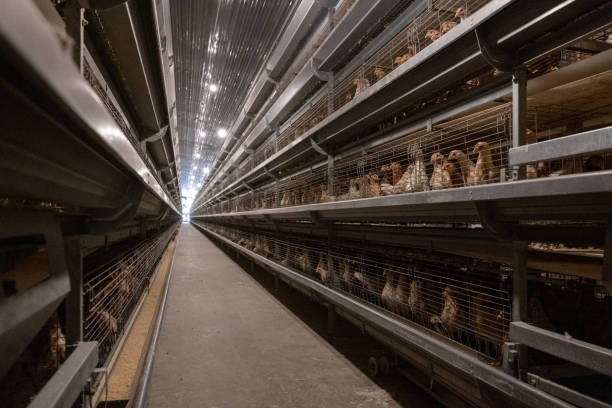
The Ultimate Poultry Farm Guide for South African Entrepreneurs
The Ultimate Poultry Farm Guide for South African Entrepreneurs
South Africa presents a fertile landscape for aspiring entrepreneurs looking to venture into poultry farming. The demand for poultry products, especially eggs and meat, consistently outpaces supply, creating a lucrative opportunity for those willing to invest the time, effort, and resources required for a successful poultry business. However, navigating the intricacies of poultry farming can be daunting. This guide aims to provide South African entrepreneurs with a comprehensive roadmap, covering everything from choosing the right poultry farming system to marketing your produce.
**Understanding the South African Poultry Market**
Before diving into the specifics of setting up a poultry farm, it’s crucial to understand the dynamics of the South African market. The industry is largely dominated by a few major players, but there’s still ample room for smaller, independent farmers, particularly those who focus on niche markets like free-range eggs or organically raised chickens.
Key market trends include:
* **Increasing demand for poultry products:** Chicken is a staple protein source in South African diets, and egg consumption is also steadily rising.
* **Growing preference for quality:** Consumers are increasingly discerning and willing to pay a premium for higher-quality poultry products, especially those that are locally sourced and sustainably produced.
* **Rise of alternative farming methods:** Free-range and organic poultry farming are gaining traction as consumers become more conscious of animal welfare and environmental concerns.
* **Impact of imports:** South Africa faces competition from poultry imports, particularly from Brazil and the EU. Staying competitive requires focusing on efficiency, quality, and value-added products.
**Choosing the Right Poultry Farming System**
The first major decision you’ll make is choosing the right poultry farming system. This depends on your available capital, land size, target market, and personal preferences. The most common systems are:
* **Intensive Cage System:** This system involves housing chickens in cages, typically made of wire. Although this method is controversial regarding animal welfare, it is the most readily utilized. Egg production is optimized as hens do not expend energy searching for food or potential nest sites. This type of system also facilitates easy monitoring of individual hen health. Manure removal systems are also integrated into the housing to further promote bird health.
* **Deep Litter System:** In this system, chickens are kept in a large pen with a floor covered in litter material such as wood shavings, straw, or peanut husks. The litter provides insulation and absorbs moisture, creating a more natural environment for the birds. Deep litter systems require more labor for cleaning and managing the litter, but they offer better animal welfare conditions.
* **Free-Range System:** Free-range systems allow chickens to roam freely outdoors for a significant portion of the day. This system provides the highest level of animal welfare and allows the birds to exhibit their natural behaviors. Free-range systems require more land and investment in fencing and predator control measures. However, they can command premium prices in the market.
* **Semi-Intensive System:** A hybrid of the deep litter and free-range systems, offering a balance between production efficiency and animal welfare. Birds are housed in a deep litter shed with access to an outdoor run.
For South African entrepreneurs, the deep litter or semi-intensive systems often represent the most viable options. They offer a good balance between production efficiency, animal welfare, and market demand.
**Essential Considerations for Poultry Housing**
Regardless of the chosen system, adequate housing is crucial for the health, well-being, and productivity of your chickens. Key considerations include:

* **Space:** Provide adequate space per bird to prevent overcrowding and reduce stress. Recommended space requirements vary depending on the system and breed.
* **Ventilation and Temperature Control:** Good ventilation is essential for removing ammonia and other harmful gases and maintaining a comfortable temperature. In South Africa’s varied climate, you may need to invest in cooling systems for the summer and heating systems for the winter.
* **Lighting:** Proper lighting is essential for egg production and overall bird health. Natural light should be supplemented with artificial light to maintain a consistent photoperiod.
* **Biosecurity:** Implement strict biosecurity measures to prevent the spread of diseases. This includes controlling access to the farm, disinfecting equipment, and maintaining good hygiene practices.
* **Predator Control:** Protect your chickens from predators such as foxes, jackals, and birds of prey. This may involve building secure fencing and using deterrents such as guard dogs or electronic alarms.
The choice of breed will depend on your farming system and target market. For egg production, layer breeds such as the Lohmann Brown, Hy-Line Brown, and ISA Brown are popular choices. These breeds are known for their high egg production rates and docile temperament. For meat production, broiler breeds such as the Cobb 500 and Ross 308 are commonly used. These breeds are fast-growing and efficient converters of feed to meat. Dual-purpose breeds, such as the Potchefstroom Koekoek, can be a good option if you want to produce both eggs and meat.
**Feeding and Nutrition**
Proper feeding and nutrition are critical for optimal growth, egg production, and overall health. Chickens require a balanced diet that provides adequate amounts of protein, carbohydrates, fats, vitamins, and minerals. Commercial poultry feeds are available in different formulations based on the age and production stage of the birds. It’s essential to choose a reputable feed supplier and follow their feeding recommendations. Supplementing commercial feeds with locally sourced ingredients such as maize, sunflower meal, and vegetable scraps can help reduce feed costs. However, it’s crucial to ensure that any supplemental feed is properly balanced and free from contaminants.
**Water Management**
Clean and fresh water is essential for poultry health and productivity. Provide a constant supply of water using automatic drinkers or nipple drinkers. Regularly clean and disinfect water sources to prevent the growth of bacteria and algae. Water quality is particularly important in hot weather, as chickens can become dehydrated quickly.

**Health Management and Disease Prevention**
Disease outbreaks can be devastating for poultry farms. Implement a comprehensive health management program that includes vaccination, regular health checks, and prompt treatment of sick birds. Common poultry diseases in South Africa include Newcastle disease, infectious bronchitis, avian influenza, and coccidiosis. Work closely with a veterinarian to develop a disease prevention plan and ensure that you have access to the necessary medications and vaccines. Practice strict biosecurity measures to minimize the risk of disease introduction and spread.
**Waste Management**
Poultry farms generate significant amounts of manure, which can be a source of pollution if not managed properly. Implement a waste management system that minimizes odor and environmental impact. Composting is a common method of managing poultry manure, as it reduces volume and odor and produces a valuable fertilizer. Manure can also be used as a soil amendment or as a feedstock for biogas production.
**Marketing Your Poultry Products**
Effective marketing is crucial for selling your poultry products and achieving profitability. Develop a marketing plan that identifies your target market, defines your unique selling proposition, and outlines your marketing strategies. Potential marketing channels include:
* **Direct sales:** Selling directly to consumers through farmers’ markets, farm shops, or online platforms.
* **Local retailers:** Supplying eggs and meat to local supermarkets, butcher shops, and restaurants.
* **Wholesalers:** Selling your produce to wholesalers who distribute to larger retailers and institutions.
* **Niche markets:** Targeting consumers who are willing to pay a premium for free-range, organic, or other specialty poultry products.
Branding and packaging can play a significant role in differentiating your products and attracting customers. Emphasize the quality, freshness, and local origin of your poultry products.
**Financial Management and Record Keeping**
Sound financial management and accurate record keeping are essential for tracking your business performance and making informed decisions. Develop a budget that outlines your expected income and expenses. Track your production costs, sales, and profitability. Use accounting software or spreadsheets to manage your finances. Regularly review your financial performance and make adjustments as needed.
**Regulations and Permits**
Poultry farming in South Africa is subject to various regulations and permits. You will need to register your farm with the Department of Agriculture, Forestry and Fisheries. You may also need to obtain permits for water usage, waste disposal, and building construction. Ensure that you comply with all relevant regulations to avoid fines or penalties.
**Sustainability and Ethical Considerations**
Consumers are increasingly concerned about the environmental and ethical impact of food production. Embrace sustainable farming practices that minimize your environmental footprint and promote animal welfare. Consider implementing practices such as:
* **Reducing water and energy consumption.**
* **Using renewable energy sources.**
* **Minimizing waste generation.**
* **Providing a comfortable and enriching environment for your chickens.**
* **Adhering to animal welfare standards.**
By demonstrating a commitment to sustainability and ethical practices, you can attract a growing segment of consumers who are looking for responsibly produced poultry products.
**Conclusion**
Poultry farming in South Africa offers significant opportunities for entrepreneurs who are willing to invest the time, effort, and resources required for success. By understanding the market dynamics, choosing the right farming system, implementing best management practices, and embracing sustainability, you can build a profitable and rewarding poultry business. This guide provides a comprehensive overview of the key considerations for South African entrepreneurs. It is essential to continuously learn and adapt to changes in the market and technology to remain competitive and ensure the long-term success of your poultry farm.

